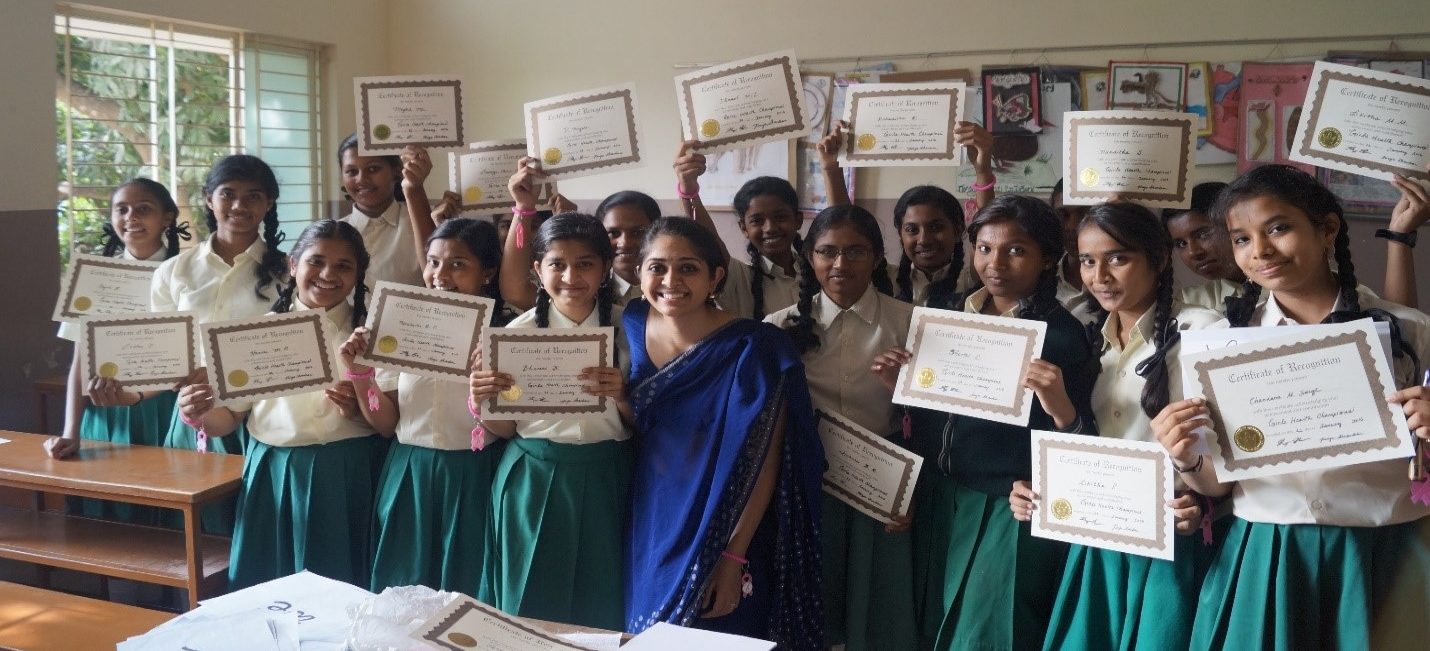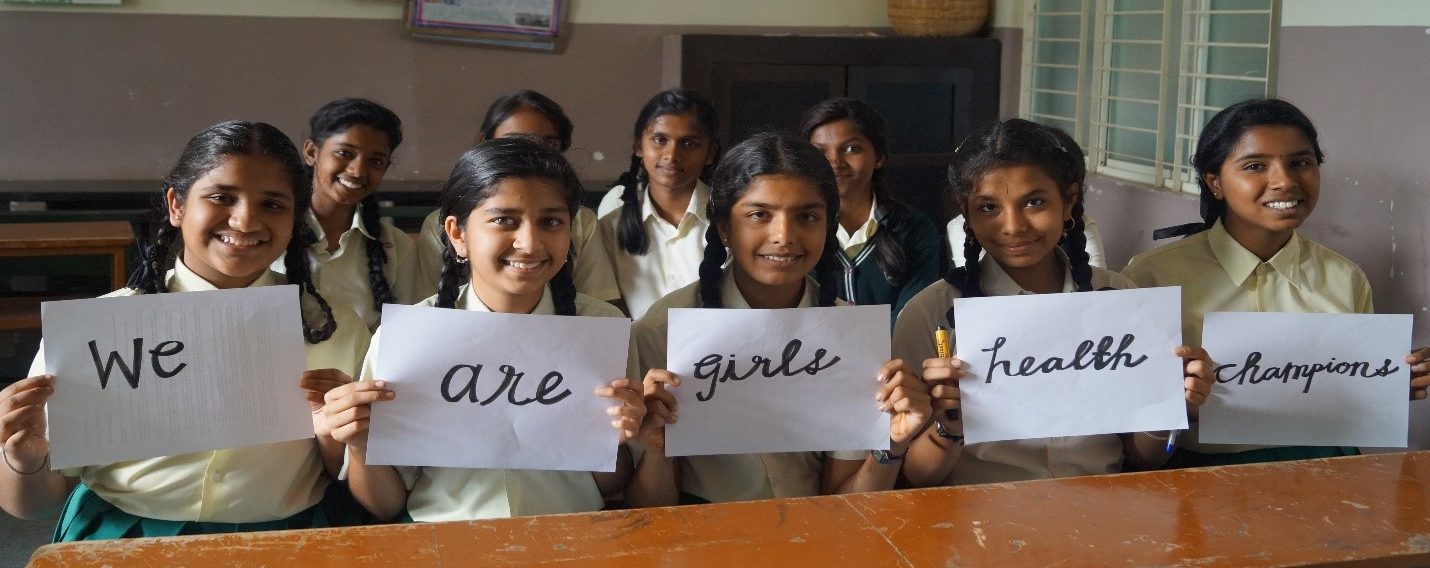Fourth-Year Student Creates Non-Profit Championing Adolescent Girls
 Priya Shankar, center, with the inaugural class of Girls Health Champions
Priya Shankar, center, with the inaugural class of Girls Health Champions
Priya Shankar (BUSM ’17) visited India on a service trip when she was 13 years old, and the experience transformed her life, launching a commitment to serving girls and women that has become a driving force. She has traveled to the country more than 20 times since then, first as a volunteer teacher and later as a Fulbright Scholar researching maternal and child health and nutrition policy.
Shankar, who earned her MPH last spring from Harvard’s T.H. Chan School of Public Health, piloted Girls Health Champions in India, a program that trains girls as peer health educators in their schools and communities. The program was selected as the runner-up to the 2016 Harvard-wide innovation competition, the President’s Challenge, winning Shankar and co-founder Ricky Sharma, $15,000 in prizes as well as the chance to turn Girls Health Champions into a non-profit organization.
Gender inequality is deeply entrenched in Indian society, resulting in poor health outcomes for many of the country’s 110 million adolescent girls. Over the years, Shankar observed how these societal norms can negatively affect women’s and girls’ opportunities, from menstrual taboos that keep girls home from school, to the belief that husbands have the right to eat food first in their families, leaving women and girls anemic and undernourished. Topics like these are often not addressed in schools or discussed between parents and children. But Shankar believed that if girls were given the right information they could teach and support each other.
The program is based on a peer-to-peer education model where adolescent girls are trained to directly educate their peers about critical health-related topics, from nutrition to reproductive health. Priya felt that providing girls with their own voice and equipping them with information about their bodies and health would put them one step closer to ending generations of gender inequality. She spent much of her MPH developing the curriculum and research design behind Girls Health Champions with the help of pediatricians, psychiatrists, obstetricians and gynecologists, educational specialists, and school teachers in the United States and India.
In her initial pilot study, she randomly selected eighteen girls to serve as “Champions” from a group of 68 ninth-grade students participating in the program. They spent a week learning the curriculum, which included nutrition and anemia, mental health and gender-based violence, menstruation and reproductive anatomy, and reproductive health, and then taught it to their classmates. All of the students were tested on their knowledge of the material before and after the program was implemented. At the start, the Champions scored 55 percent and the rest of the class scored 68 percent; at the end, they all scored 96 percent. One of the Champions described her experience being a Champion, stating, “Our world is not very healthy. I am proud to be a Girls Health Champion to teach others the right information.”
Today, the non-profit organization has reached over 1000 girls, and Shankar is amazed at the program’s success. “Every time I see our Champions speaking, it is a reminder of the immense potential and promise within each and every young girl.”

“Over the next years, I want continue this work by expanding Girls Health Champions to hundreds of schools across India and building our team on the ground. I also hope to continue clinical research to determine the effects of the peer education model with regards to health behavior change, self-esteem, and leadership of our Champions,” explains Shankar. “I am grateful to a number of BUSM faculty members, such as Dr. Alan Meyers, and also to Dr. Suzanne Sarfaty and the International Health Studies Elective for giving me support throughout this journey, and the opportunity to visit India several times during the course of medical school.”
In the long-term, Shankar hopes for a trickle effect to occur– girls helping other girls; girls provided with the skills, knowledge and dialogue to deal with the many challenges they may experience as they progress towards womanhood; and girls being given a voice.
Shankar will attend the UC San Francisco’s Pediatric Leadership for the Underserved (PLUS) residency program, a residency aimed at allowing graduates to build careers that improve the health of underserved children globally. She is a recipient of the 2017 Suffolk District Medical Society Annual Medical Student Scholarship and a Massachusetts Medical Society Scholar.
View all posts